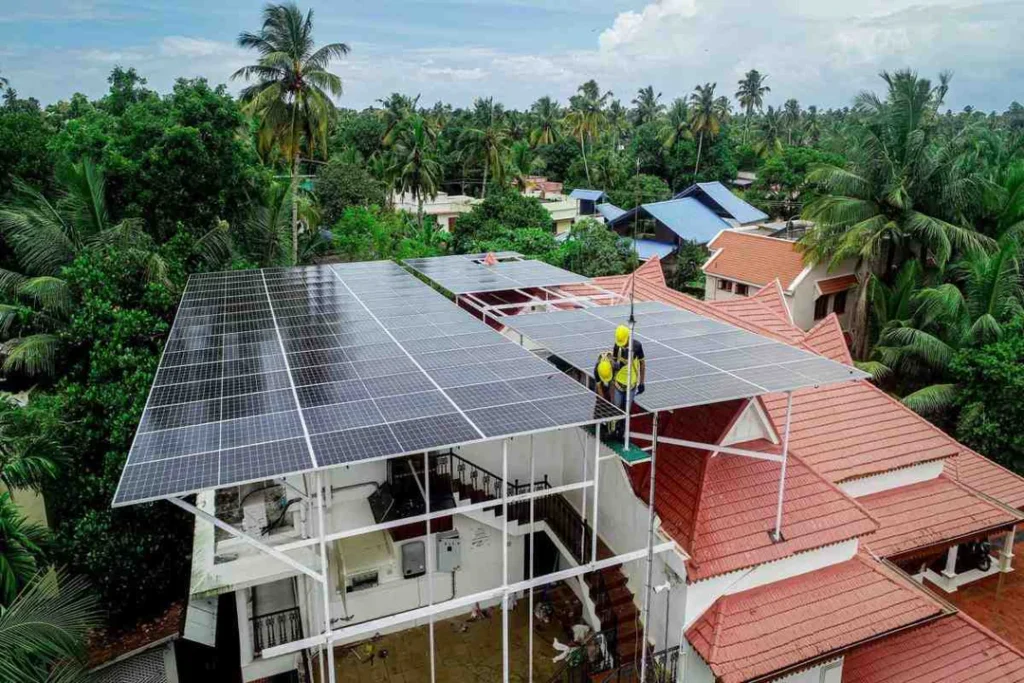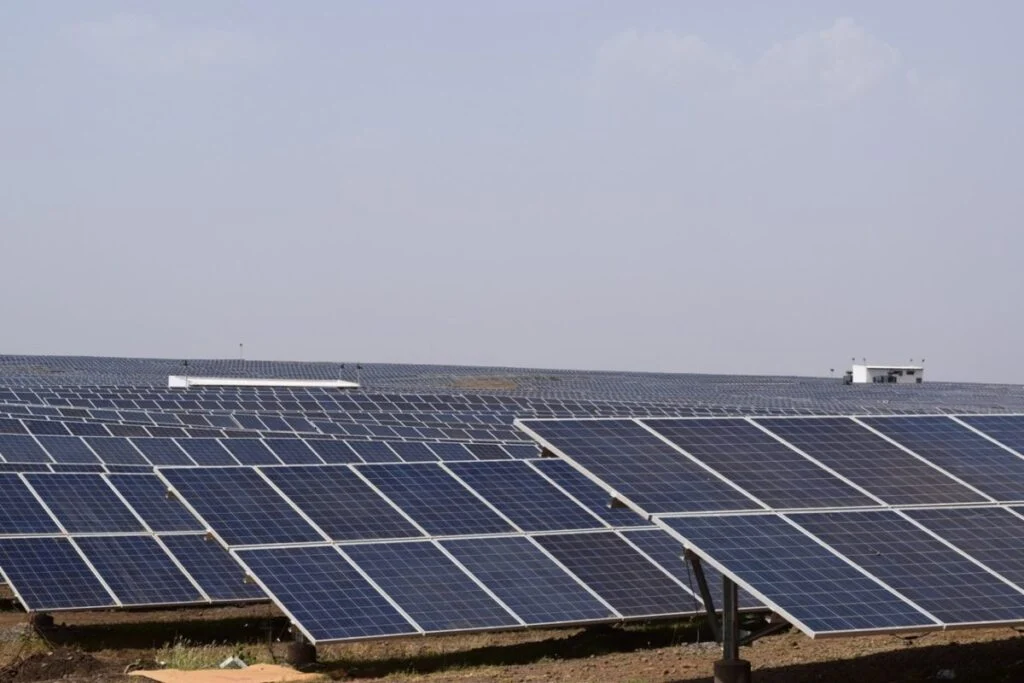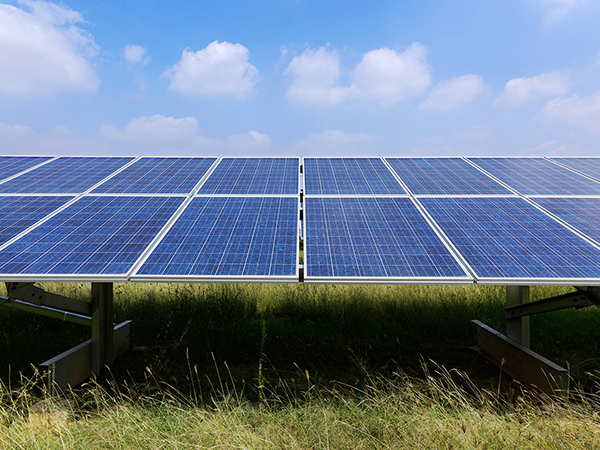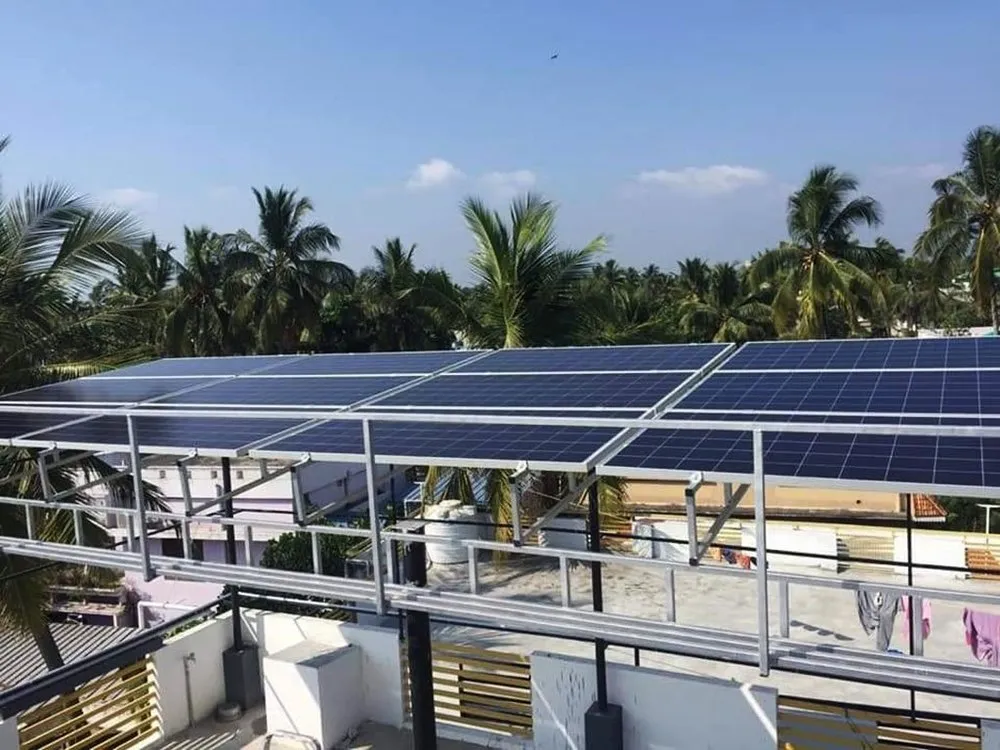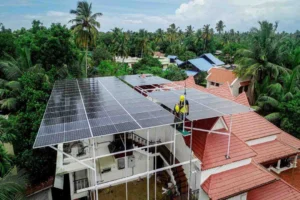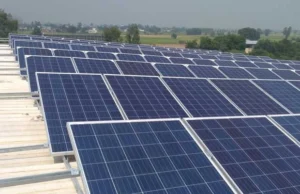Understanding the solar EPC cost per MW is one of the most important steps for investors, developers, and businesses entering India’s solar energy market. With renewable energy growing at record pace, the right knowledge of solar EPC pricing can help companies budget better, avoid hidden expenses, and plan long-term ROI effectively.
In India, EPC (Engineering, Procurement & Construction) contractors handle everything from system design and procurement to installation and commissioning. Choosing the right partner at the right solar EPC project cost ensures quality execution without compromising financial efficiency.
Manufyn, a trusted International Purchasing Office (IPO) and EPC partner, provides transparency in 1 MW solar EPC cost, leverages global sourcing for price optimization, and works exclusively with ISO-certified suppliers. This ensures businesses get both affordability and world-class quality in their renewable energy projects.
Average Solar EPC Cost per MW in India
The solar EPC cost per MW in India has become one of the most closely tracked benchmarks for renewable energy investors. Currently, the average 1 MW solar EPC cost ranges between ₹3.5 – ₹4.5 crore. Factors such as project location, choice of modules and inverters, and the EPC vendor’s expertise play a major role in determining the final solar EPC pricing.
Project Variations in Solar EPC Project Cost
Utility-Scale Solar Projects:
For large, utility-scale plants, the solar EPC project cost per MW is usually lower. Economies of scale allow bulk procurement of modules, reduced installation overheads, and optimized land usage, making these projects more cost-efficient.
Rooftop Solar EPC Pricing:
In rooftop installations, the solar EPC pricing tends to be higher per MW. This is due to smaller project sizes, custom site adjustments, and additional structural reinforcements required for rooftops. Despite the higher upfront expense, rooftop projects often deliver strong ROI through net metering and reduced energy bills.
Hybrid Projects (Solar + Storage/Green Hydrogen):
Projects that combine solar with energy storage systems or green hydrogen technology involve higher initial costs. While the solar EPC turnkey cost is higher in such cases, they provide long-term value by reducing reliance on the grid and ensuring energy security.
Manufyn’s Value in Cost Optimization
Manufyn bridges the gap between affordability and global quality standards. By combining local supplier networks with international procurement expertise, the company ensures that every project benefits from competitive solar EPC bid prices. With Manufyn, businesses achieve the most cost-effective solar EPC tender cost per MW without sacrificing compliance or performance.
Key Factors Affecting Solar EPC Pricing in India
The solar EPC cost per MW is not fixed, it fluctuates depending on several project-specific variables. Understanding these factors helps investors and businesses anticipate expenses, optimize planning, and ensure realistic ROI. Whether it’s the type of solar panel, installation method, or supplier reliability, each element directly impacts the final solar EPC project cost.
Land Costs & Site Conditions
For ground-mounted systems, land cost is one of the biggest contributors to the overall solar EPC project cost. Soil strength, terrain leveling, and site accessibility determine the scale of civil works required. Projects located in remote areas often face higher expenses due to transport and infrastructure challenges, influencing both solar EPC pricing and lead times.
Solar Panels & System Size
Modules account for nearly 50–60% of the 1 MW solar EPC cost, making them a decisive factor. The type and quality of solar panels, monocrystalline, polycrystalline, or bifacial, affect efficiency and long-term performance. Larger system sizes benefit from bulk procurement discounts, reducing per-MW solar EPC turnkey cost.
Inverter Technology
Inverters contribute around 10–15% of the solar EPC project cost. The choice between string inverters, central inverters, hybrid models, or off-grid systems directly influences both upfront expenses and system reliability. Advanced hybrid inverters, while costlier, offer long-term savings and flexibility in energy management.
Installation Type
Whether a project is rooftop or ground-mounted has a major impact on the solar EPC pricing. Rooftop installations require additional structural reinforcements, site customization, and sometimes space optimization, making them costlier per MW. Ground-mounted systems, on the other hand, benefit from simpler scalability and lower per-unit costs.
Mounting Structure Type
The type of mounting structure, fixed tilt, seasonal tilt, or tracking systems, can significantly alter costs. While trackers increase the solar EPC bid price due to higher equipment and installation expenses, they also improve energy yield, lowering long-term LCOE (Levelized Cost of Electricity).
Government Subsidies & Incentives
Government schemes like the PM-Surya Ghar Muft Bijlee Yojana directly affect the solar EPC tender cost by reducing upfront investment. Subsidies, tax benefits, and accelerated depreciation create financial incentives that lower the effective solar EPC cost per MW for both residential and commercial projects.
Civil, Electrical & Structural Works
Beyond panels and inverters, foundations, mounting structures, cabling, transformers, and grid connectivity add significant costs. The complexity of electrical and structural work varies by project size and type, often impacting both the solar EPC turnkey cost and execution time.
Supply Chain Reliability & Vendor Quality
Delays, poor-quality materials, or unreliable vendors can inflate the 1 MW solar EPC cost over time. Partnering with trusted EPC providers like Manufyn ensures supplier vetting, ISO-certified quality checks, and seamless procurement, keeping both solar EPC pricing and risks under control.
Manufyn’s Take on EPC Pricing
Manufyn stands out by balancing affordability with reliability. Through its global procurement channels and local supplier networks, the company ensures competitive solar EPC bid prices without compromising quality. Clients benefit from transparent costing, robust supply chains, and full compliance with international standards.
Ready to optimize your solar EPC project cost? Partner with Manufyn India Private Limited for turnkey execution, global sourcing, and renewable energy innovation.
EPC Turnkey Cost vs. Split Scope EPC Pricing
The choice between turnkey execution and split-scope management can significantly influence the overall solar EPC cost per MW. Both models have advantages depending on budget, project complexity, and the level of control required. Understanding the difference helps investors and businesses choose the most effective approach to manage their solar EPC project cost.
Turnkey EPC Cost
A solar EPC turnkey cost covers the complete project, design, engineering, procurement of equipment, installation, testing, and commissioning. In this model, businesses hand over responsibility to a single EPC partner who manages everything end-to-end.
Pros: Single accountability, faster execution, and streamlined communication reduce delays and risks. Investors gain peace of mind knowing their 1 MW solar EPC cost is predictable and controlled under one vendor.
Cons: The upfront solar EPC pricing for turnkey projects is slightly higher. Businesses may also have less flexibility in choosing specific suppliers for modules, inverters, or structures.
Split Scope EPC Pricing
With split scope, buyers handle procurement themselves while the EPC partner manages design and construction. This model can reduce the overall solar EPC tender cost, especially if buyers source equipment directly at competitive rates.
Pros: Potential cost savings on modules, inverters, and other components. Greater control over supplier selection, which can reduce solar EPC bid prices if vendors are carefully chosen.
Cons: Higher risks due to fragmented accountability, increased coordination challenges, and potential warranty or quality conflicts. Mismanagement here can raise the actual solar EPC project cost.
Manufyn’s Capability in Both Models
Manufyn offers flexibility by executing both solar EPC turnkey cost models and split-scope approaches. For clients who prefer simplicity, turnkey execution ensures reliability, speed, and compliance with global standards. For cost-sensitive buyers, split-scope EPC gives control while Manufyn mitigates risks with vetted, ISO-certified supplier networks.
Solar EPC Tender Cost & Bid Price Trends in India
The solar EPC cost per MW in India is strongly influenced by government tenders and competitive bidding processes. Over the past few years, aggressive auctions and declining tariffs have put downward pressure on the overall solar EPC tender cost. While this benefits investors in the short term, it creates challenges for EPC contractors who must balance lower margins with rising expenses.
Evolving Bids
India’s renewable energy push has led to highly competitive auctions, where EPC companies often lower their solar EPC bid prices to win contracts. This competitive environment keeps the 1 MW solar EPC cost attractive for investors, but EPC partners must maintain strict efficiency to remain profitable.
Policy Influence
Government policies play a central role in shaping solar EPC pricing. Import duties on modules and inverters, subsidies for domestic manufacturing, and state-specific policies all impact the final solar EPC project cost. Incentives like accelerated depreciation and tax breaks can offset the higher solar EPC turnkey cost, making projects more viable.
Market Trends
The current trend in India’s solar sector reflects a squeeze, tariffs are dropping, but equipment and labor costs continue to rise. This imbalance is pushing EPC contractors to innovate, optimize procurement, and adopt smarter design strategies to manage the solar EPC cost per MW effectively.
Manufyn’s Advantage
Manufyn helps clients navigate this competitive landscape by combining global sourcing with local supplier vetting. With ISO-certified partners and strict quality control, Manufyn ensures investors secure competitive solar EPC bid prices while maintaining compliance with international standards. This balance allows businesses to achieve affordable yet reliable renewable energy projects.
Cost-Optimization Strategies with Manufyn
Managing the solar EPC cost per MW effectively requires a mix of strategic sourcing, smart design, and advanced engineering. With rising equipment and labor costs, EPC companies must find innovative ways to reduce the solar EPC project cost without compromising quality.
Manufyn achieves this balance by leveraging global expertise and localized solutions to deliver cost-efficient, future-ready projects.
Global + Local Sourcing
A significant portion of the 1 MW solar EPC cost comes from modules, inverters, and mounting structures. By combining global procurement channels with vetted local suppliers, Manufyn ensures optimized solar EPC pricing. This hybrid sourcing model helps reduce logistics expenses while maintaining international quality standards.
Smart Design
Design optimization is critical for reducing the solar EPC turnkey cost. Manufyn uses advanced CAD/CAM/CAE tools to create efficient layouts that minimize land use, cut down material waste, and maximize energy yield. This design-led approach directly lowers the effective solar EPC cost per MW.
Custom Component Manufacturing
Manufyn also provides custom component manufacturing for solar equipment using injection moulding and prototyping services. By producing parts like cable connectors, housings, and protective casings in-house, Manufyn reduces dependency on external vendors and keeps solar EPC bid prices competitive.
Future-Ready Energy Solutions
As hybrid renewable projects grow, Manufyn supports clients with integrated solutions like solar EPC + green hydrogen. While upfront costs are higher, these systems ensure long-term sustainability and improve ROI, ultimately reducing lifecycle solar EPC project costs.
Value Engineering
Every EPC project undergoes value engineering to balance cost efficiency with performance. By analyzing materials, processes, and supplier options, Manufyn ensures each project achieves the best possible solar EPC tender cost without compromising reliability or compliance.
Conclusion: Partnering for Cost-Efficient EPC Execution
The solar EPC cost per MW in India continues to vary depending on land expenses, system size, equipment quality, and execution models. While the average 1 MW solar EPC cost ranges between ₹3.5 – ₹4.5 crore, actual project expenses depend on multiple factors such as panel type, inverter technology, and site-specific conditions. Understanding these elements helps businesses plan realistically and manage overall solar EPC project costs more effectively.
Choosing the right EPC partner is critical for ensuring long-term value. A reliable company not only provides transparent solar EPC pricing but also guarantees efficiency, quality, and compliance with international standards. With ISO-certified suppliers, global sourcing expertise, and value engineering, Manufyn ensures that clients get the most competitive solar EPC turnkey cost while reducing risks.
For investors and businesses, working with Manufyn means securing affordable solar EPC bid prices, optimized solar EPC tender costs, and project execution that’s future-ready. By combining innovation with accountability, Manufyn helps organizations achieve cost-efficient, scalable, and sustainable solar energy solutions.
Ready to optimize your solar EPC project cost? Partner with Manufyn India Private Limited for turnkey execution, global sourcing, and renewable energy innovation.
FAQs on Solar EPC Cost in India
The average 1 MW solar EPC cost in India is between ₹3.5 – ₹4.5 crore, depending on land, modules, and technology choices. Manufyn optimizes the solar EPC cost per MW with vetted suppliers and transparent sourcing.
Rooftop solar EPC pricing is higher per MW due to smaller project size, custom site adjustments, and structural reinforcements. Utility-scale solar EPC project costs are lower thanks to bulk procurement and economies of scale.
The key drivers of solar EPC project cost are land expenses, module and inverter selection, civil and electrical works, and supplier reliability. Each of these directly impacts the overall solar EPC cost per MW.
A solar EPC turnkey cost covers end-to-end services, design, procurement, construction, installation, testing, and commissioning. Manufyn ensures predictable solar EPC pricing through its complete turnkey execution model.
The solar EPC tender cost and solar EPC bid price are influenced by government auctions, tariff rates, competition, and equipment expenses. These factors define how competitive each project’s pricing will be.
Differences in state policies, site conditions, and supplier competitiveness lead to variations in solar EPC bid prices. This makes the final solar EPC project cost unique to each tender.
Split-scope EPC can reduce upfront costs, but it carries higher risks and coordination challenges. A solar EPC turnkey cost offers full accountability and faster execution, making it more reliable for large projects.
Businesses can lower their solar EPC cost per MW through supplier vetting, global sourcing, bulk procurement, and smart design. Manufyn provides expertise in each area to optimize overall solar EPC pricing.
Manufyn maintains competitive solar EPC project costs by working with ISO-certified suppliers and using CAD/CAM/CAE support. Strict quality checks ensure reliable performance at an optimized solar EPC turnkey cost.
Hybrid projects combining solar with green hydrogen involve higher upfront solar EPC project costs. However, they ensure future-proof energy solutions, making the solar EPC cost per MW more valuable long-term.
Read More
Start Your Project Today
Ready to optimize your solar EPC project cost? Partner with Manufyn India Private Limited for turnkey execution, global sourcing, and renewable energy innovation.
